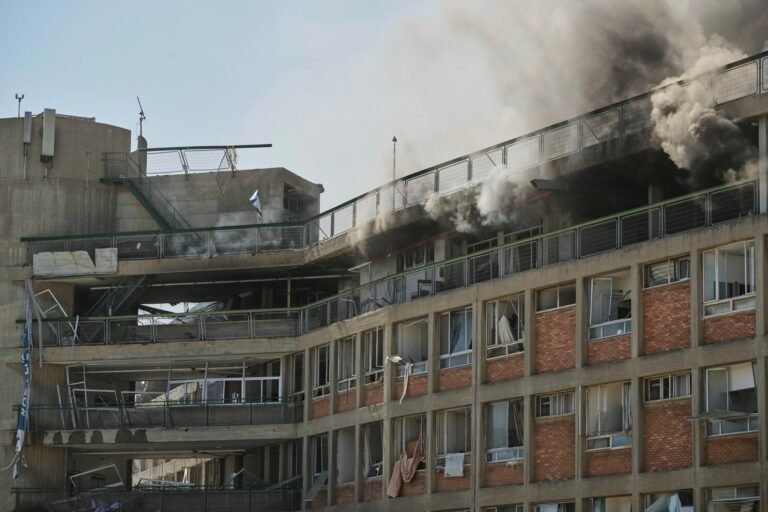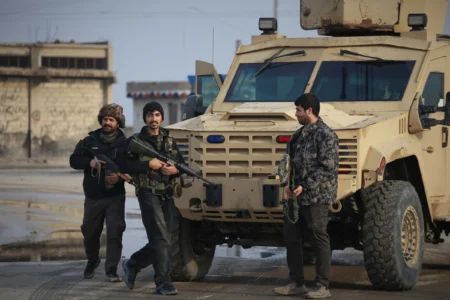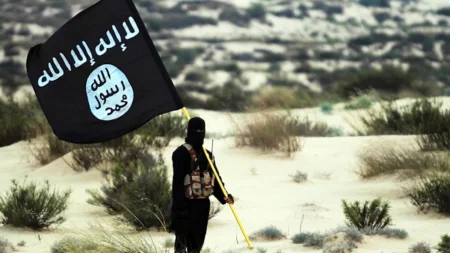The recent US military strike on Iran has raised major concerns throughout the Middle East. Analysts believe this bold action has pushed the entire region into a dangerous new phase. Many experts argue that the US is following Israel’s agenda, risking war and political chaos.
The attack reportedly targeted Iran’s nuclear facilities. But analysts say the goal goes beyond that. They believe the US also wants to bring regime change in Iran, something the Trump administration had long aimed for. Experts warn that this action could put around 40,000 American personnel based in the region at serious risk.
Washington’s decision has drawn sharp criticism. Some say it has acted not in its own interest, but to meet Tel Aviv’s demands. The US, they argue, is now acting as a tool for Israel’s plans to weaken or remove Iran’s ruling government.
One analyst said, “What the US has done is nothing but part of Israel’s agenda. Destroying Iran’s nuclear program is not their only goal. They want to remove Iran’s current leadership.” The expert added, “The US should understand that dropping bombs doesn’t solve problems. It can’t change Iran’s policies through violence. Instead, this step has made the whole region more dangerous.”
After the attack, Iran responded by saying that it considers any strike on its territory as a direct act of war. According to international law, Iran has the right to defend itself. Analysts stress that this means all US military bases, assets, and troops in the region are now valid targets for Iranian retaliation.
Iran has issued clear warnings. Any attack on its land, it says, will not go unanswered. The country’s leadership has already stated that it sees the US move as a declaration of war. This brings new fear that open conflict may soon follow.
Military experts say the situation could escalate fast. If Iran strikes back, the US may respond with even more force. This could lead to a wider war that affects not just Iran and the US, but also neighboring countries. Oil routes, trade, and regional peace may all suffer.
The US has tens of thousands of personnel in the Middle East. These include troops, embassy staff, and contractors. All of them could now face danger if Iran begins to retaliate. Iranian officials have not yet acted, but observers say it is unlikely that Tehran will stay silent.
Many are also questioning the long-term goals of the US. Was the strike meant to delay Iran’s nuclear program? Or was it to trigger regime change? Experts say the answer may be both. But they also note that such a move could easily backfire. Instead of weakening Iran, it could strengthen national unity and resistance.
Washington’s strategy is now under the spotlight. While some US officials claim the move was defensive, most analysts see it as aggressive and provocative. They warn that this could become one of the most serious regional crises in recent history.
One expert said, “This is not just about one country attacking another. It’s about a dangerous shift in US foreign policy. They’ve ignored diplomacy and jumped straight to force.” He added, “The US has now made itself a clear target. Iran has every legal right to strike back.”
So far, Iran’s leaders have not revealed how or when they might respond. But few believe they will remain passive. History shows that Iran has often answered attacks with equal or stronger force. If that pattern continues, a chain of violence could soon unfold.
The world is now watching closely. Any next move by Tehran could set off a wider conflict. And with so many countries having interests in the region, the danger of a broader war is very real.
Analysts say the only way forward is through calm diplomacy. But after this strike, that path seems more difficult than ever.







